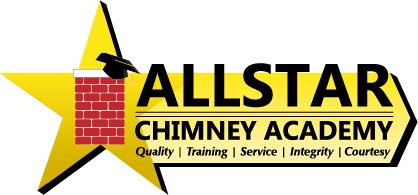
Chimney Sweep Pensacola, Florida
Call us today:
(850) 254-9948
What makes sweeping a chimney diffrent in Pensacola than other areas?
It is especially important to get your chimney swept annually in the southeastern United States, including Pensacola, Florida, due to the unique climate and environmental conditions in the region. The high humidity and frequent rain in the Southeast can lead to moisture buildup in the chimney, which can cause damage and accelerate the buildup of soot and creosote.
Additionally, many homes in the Southeast use their chimneys as part of their air conditioning systems, which can lead to additional wear and tear on the chimney. The warm and humid conditions in Pensacola, in particular, create an environment that is conducive to the growth of mold and mildew, which can further exacerbate chimney problems.
To prevent serious safety hazards and ensure that your chimney is functioning efficiently, it is crucial to have your chimney cleaned and inspected annually by a professional chimney sweep in the Southeastern United States, including Pensacola, Florida.
What is Soot and Creosote and how does it affect my chimney?
Soot and creosote are two of the most dangerous substances that can accumulate in a chimney. Soot is a black, powdery substance that is made up of carbon particles and can be released into the air if not cleaned properly. Inhaling soot can cause respiratory problems and worsen existing health conditions such as asthma or bronchitis.
Creosote, on the other hand, is a highly flammable substance that is created when wood is burned. It sticks to the walls of the chimney and can ignite, causing a chimney fire that can quickly spread to other parts of the home. In addition to being a fire hazard, creosote buildup can also reduce the efficiency of your fireplace and lead to higher energy bills.
The best way to prevent the dangers of soot and creosote is to have your chimney cleaned and inspected annually by a professional chimney sweep. Don’t wait until it’s too late, invest in the safety and well-being of your home today.
Awards and Certifications

the Professional Chimney Guild of America (PCGA), it is an organization that represents chimney professionals in the United States. The PCGA is committed to promoting education, safety, and professionalism in the chimney industry.

Technicians who are certified by Allstar Chimney Academy have received extensive training in chimney cleaning and repair, and are well-equipped to handle any issues that may arise during the cleaning process.
Why do I need to have my fireplace cleaned annually?
Getting your fireplace cleaned annually is an important step in maintaining a safe and efficient heating system for your home. Over time, the buildup of soot, creosote, and debris in your chimney can pose serious safety hazards, such as chimney fires and carbon monoxide poisoning.
By having your fireplace cleaned annually by a professional chimney sweep, you can rest assured that your chimney is free from any dangerous obstructions and is working as efficiently as possible.
Not only will a clean chimney keep your family safe, but it will also save you money on energy bills by allowing your fireplace to burn more efficiently. So why wait? Invest in the safety and comfort of your home today by scheduling an annual fireplace cleaning with a trusted chimney sweep.

Fireplaces are not only a source of warmth and ambiance but also subject to regulations to ensure safety and environmental protection. In Pensacola, the local government, in partnership with organizations like the Environmental Protection Agency (EPA), has established guidelines regarding the installation, usage, and maintenance of fireplaces. Homeowners can visit the official government sites of Pensacola, such as the EPA’s website, to access comprehensive information on fireplace regulations, such as emission standards and fuel requirements. To comply with these regulations and maintain a safe and efficient fireplace, it is essential to consult reputable fireplace sites like the Hearth, Patio & Barbecue Association. These websites provide valuable insights into choosing eco-friendly fireplace options, as well as tips for proper usage and maintenance, ensuring that Pensacola residents can enjoy their fireplaces responsibly while minimizing environmental impact.
What is Soot and Creosote and how does it affect my chimney?
Soot and creosote are two of the most dangerous substances that can accumulate in a chimney. Soot is a black, powdery substance that is made up of carbon particles and can be released into the air if not cleaned properly. Inhaling soot can cause respiratory problems and worsen existing health conditions such as asthma or bronchitis.
Creosote, on the other hand, is a highly flammable substance that is created when wood is burned. It sticks to the walls of the chimney and can ignite, causing a chimney fire that can quickly spread to other parts of the home. In addition to being a fire hazard, creosote buildup can also reduce the efficiency of your fireplace and lead to higher energy bills.
The best way to prevent the dangers of soot and creosote is to have your chimney cleaned and inspected annually by a professional chimney sweep. Don’t wait until it’s too late, invest in the safety and well-being of your home today.
Chimneys play a crucial role in the functioning and safety of fireplaces. In Pensacola, Florida, where historic homes and cozy fireplaces are common, the local government, in collaboration with organizations like the Pensacola Historic Preservation Society, emphasizes the importance of chimney maintenance and regulation. Pensacola’s government websites, such as the official City of Pensacola website and the Pensacola Fire Department’s website, provide valuable information on fireplace safety and guidelines for maintaining chimneys. By following these regulations, homeowners can ensure their fireplaces are both efficient and safe. For those seeking high-quality chimney services in Pensacola, reliable resources can be found on reputable chimney websites like the National Chimney Sweep Guild. These sites offer professional chimney inspections, repairs, and cleaning services, ensuring the longevity and optimal performance of chimneys in Pensacola’s homes.
FAQ (Frequently Asked Questions)
How often should I have my chimney cleaned and inspected?
The National Fire Protection Association recommends that chimneys should be inspected at least once a year, and cleaned as needed. However, the frequency of cleaning and inspection may vary depending on several factors, including the type of fuel you burn, how often you use your chimney, and the age and condition of your chimney. For example, if you burn wood frequently, you may need to have your chimney cleaned more often than if you burn gas.
Similarly, if you notice any signs of damage or obstruction, such as smoke backing up into your home, it is important to have your chimney inspected and cleaned right away. Ultimately, the best way to determine how often you should have your chimney cleaned and inspected is to consult with a professional chimney sweep who can assess your specific situation and make recommendations based on your needs.
What are the signs that my chimney needs to be cleaned or repaired?
Several signs can indicate that your chimney needs to be cleaned or repaired. The most common signs include smoke backing up into your home, soot buildup in your fireplace or around your chimney, and a strong, unpleasant odor coming from your fireplace or chimney. Cracks or gaps in the chimney or chimney liner, water leaks or water damage near your chimney, and damaged or missing chimney caps or other accessories are other common signs.
Animal or bird nests in the chimney, white or gray buildup on the inside of the chimney (a sign of creosote), rust or corrosion on the chimney or fireplace components, and a decrease in the efficiency of your fireplace or heating system can also indicate the need for cleaning or repair.
If you notice any of these signs, it is important to have your chimney inspected and cleaned or repaired by a professional chimney sweep as soon as possible to prevent further damage or safety hazards.
What are the most common causes of chimney fires, and how can I prevent them?
The most common causes of chimney fires are the buildup of creosote and the accumulation of debris or foreign objects in the chimney. Creosote is a highly flammable substance that forms when wood burns, and it can accumulate on the inside of your chimney over time, creating a fire hazard. Debris such as leaves, sticks, and animal nests can also collect in the chimney and block airflow, increasing the risk of a fire. To prevent chimney fires, it is essential to have your chimney cleaned and inspected regularly by a professional chimney sweep.
Burning dry, seasoned wood and avoiding the use of accelerants such as gasoline or kerosene can also help reduce the risk of a fire. Additionally, using a chimney cap or spark arrestor can help prevent debris and foreign objects from entering your chimney, and ensuring that your chimney is properly installed and vented can also reduce the risk of fire.
Finally, it is crucial to have working smoke detectors and carbon monoxide detectors in your home to alert you to any potential safety hazards.
How can I tell if my chimney is functioning efficiently, and what can I do to improve its performance?
There are several ways to determine if your chimney is functioning efficiently. One of the most important indicators is the amount of smoke coming from your chimney when you use your fireplace or wood stove. If there is a lot of smoke, it could be a sign that your chimney is not drawing properly, which can cause poor performance and even safety hazards. Another indicator is the amount of heat that is being produced by your fireplace or wood stove.
If you notice that your fireplace or stove is not producing as much heat as it used to, it could be a sign that your chimney is not functioning efficiently. To improve your chimney’s performance, you can take several steps. First, ensure that your chimney is clean and free from obstructions such as creosote buildup or debris. Second, make sure that your chimney is properly vented and that there are no leaks or gaps that could cause drafts or backdrafts.
Third, consider installing a chimney cap or spark arrestor to prevent debris and foreign objects from entering your chimney. Finally, using dry, seasoned wood and avoiding the use of accelerants such as gasoline or kerosene can also help improve your chimney’s performance.
If you are unsure about your chimney’s efficiency, it is always best to consult with a professional chimney sweep who can assess your specific situation and make recommendations based on your needs.

